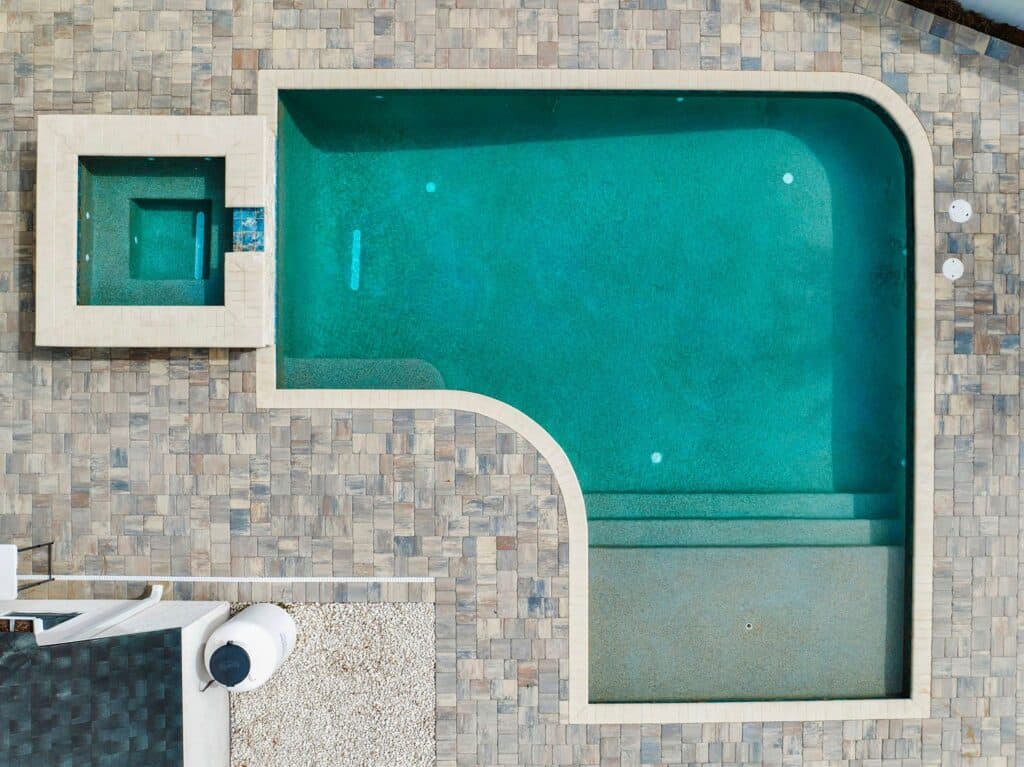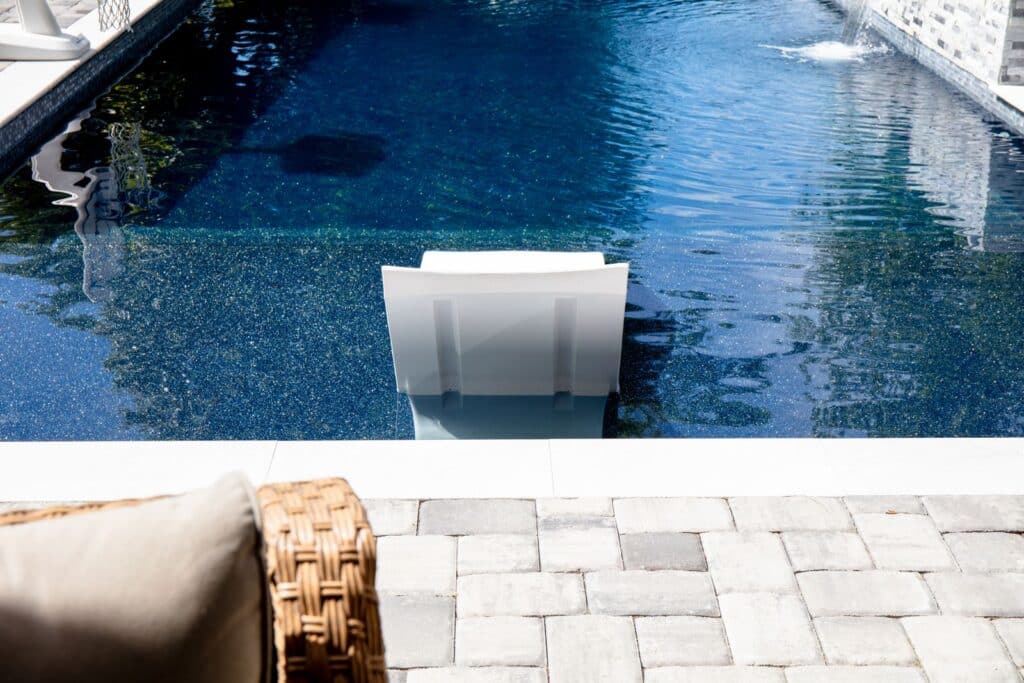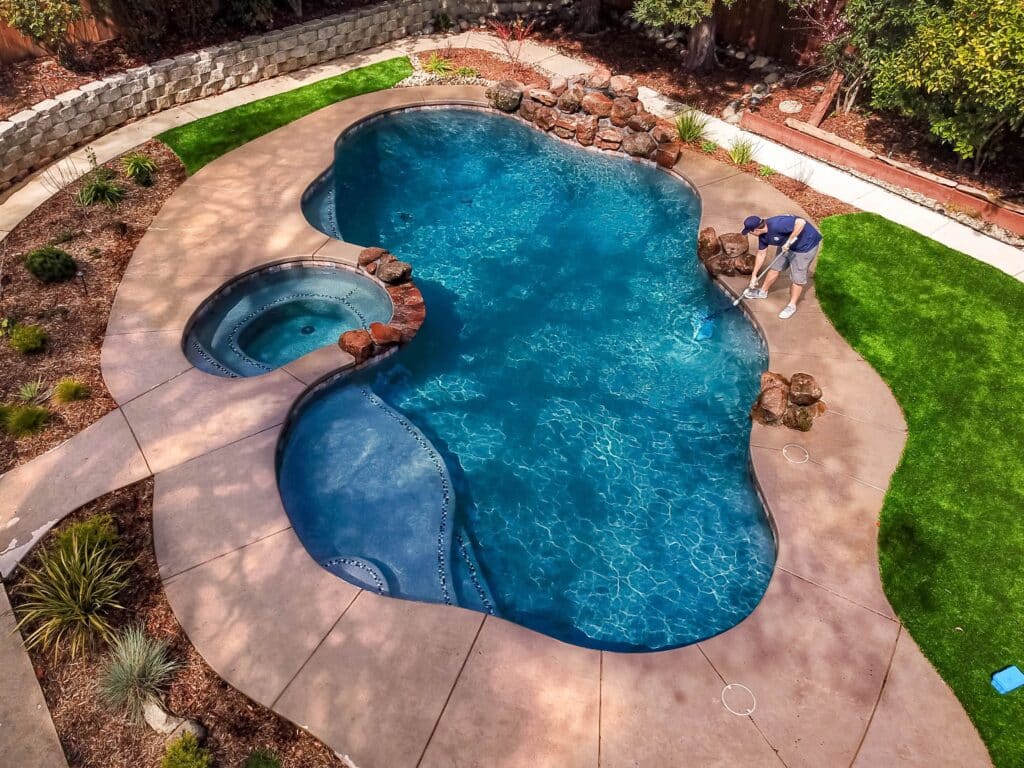If you’ve ever wondered what pool flocculant is and does, you’ve come to the right place. Keep reading to learn everything there is to know about this essential pool chemical.
What Is Pool Flocculant?
Pool flocculant is a chemical that helps to remove small particles from pool water. These particles can include dirt, debris, algae, and bacteria. Flocculants work by clumping these particles together so that they can be more easily removed from the water.
There are two main types of flocculants: inorganic and organic. Inorganic flocculants are made from Aluminum sulfate (AL-2 (SO4)3), while organic flocculants are made from polymers (long chains of molecules). Both types of flocculants are effective at removing small particles from water, but organic flocculants are generally considered to be more effective than inorganic flocculants.
How Does Pool Flocculant Work?
When added to pool water, pool flocculant creates what’s known as a “floc blanket.” This blanket bonds with small particles in the water and causes them to sink to the bottom of the pool. Once the particles have sunk to the bottom of the pool, they can be vacuumed up or filtered out.
Some types of pool filters, such as diatomaceous Earth filters, are especially effective at removing particles that have been clumped together by flocculant.
It’s important to note that you should never add flocculant directly into your skimmer basket or filter – doing so could damage your equipment. Instead, add the flocculant slowly into the deepest part of your pool while the pump is running. Doing so will help ensure that the chemicals are evenly distributed throughout your pool water.
You may need to add more flocculent periodically throughout the season if you have a lot of visitors or if bad weather causes debris to enter your pool water.
What Is Pool Flocculant Used For?
Flocculant, also known as floc, is a substance that can be added to water to create larger clumps of particles. This makes it easier to filter out the smaller particles, leaving behind cleaner water. Floc can be made from a variety of materials, including polymers and clay. It is often used in swimming pools and hot tubs to help keep the water clean and clear.
There are many types of pool flocculants available on the market, each with their own advantages and disadvantages. Polymer-based flocculants are typically more effective than those made from other materials, but they can be more pricey. Clay-based flocculants are less expensive but may not work as well in some cases.
Ultimately, the best flocculant for your pool will depend on a variety of factors, including the type of pool you have and the level of contamination in the water.
Pool flocculants are added to the water through a process known as coagulation. This involves adding the floc directly into the pool or mixing it with another liquid before adding it to the pool. The chemicals in the floc interact with contaminants in the water, causing them to clump together. These larger clumps are then able to be filtered out more easily, leaving behind clean water.
There are several benefits to using flocculants in pools and hot tubs. One of the most significant benefits is that it can help to extend the life of your filtration system by preventing small particles from clogging it up over time. Additionally, using a pool flocculant can save you money on chemicals by allowing you to use less chlorine or other sanitizers.
In some cases, using a flocculant may even allow you to reduce or eliminate your need for algaecides altogether!
Overall, pool flocculants are a helpful tool that can be used to keep your swimming pool or hot tub clean and clear. They are relatively easy to use and can save you money on chemicals and filtration costs over time. When choosing a flocculant for your pool, be sure to consider all of your options carefully in order to select the best product for your needs.
How Much Flocculant To Add To Pool?
It’s important to add the right amount of flocculant to your pool in order to keep it clean and free of debris. Too little and your pool won’t be clean; too much and you could end up with cloudy water.
There are a few things to consider when adding flocculant to your pool. The size of your pool, the type of flocculant you’re using, the level of dirt and debris in the water, and the pH levels all play a role in how much flocculant you’ll need to add.
Generally, you’ll want to add about 1/4 pound of flocculant for every 100 square feet of surface area. So, if you have a 20×40 foot pool, you’d need about 2 pounds of flocculant. The type of flocculant you use will also play a role in how much you need to add.
If your pool is very dirty or has high levels of algae, you may need to use more flocculant than usual. Adding an extra half-pound per 100 square feet of surface area should do the trick.
pH levels can also affect how much flocculant you need to add. If your pool’s pH is on the higher end (7.6 or above), you may need less flocculant as the higher pH will make the flocculation process more efficient. Conversely, if your pool’s pH is on the lower end (below 7.4), you may need more flocculant as the lower pH can inhibit flocculation.
Once you’ve added the appropriate amount of flocculant, simply run your filter for 24 hours and then vacuum any remaining debris from the bottom of your pool.
Hire a Professional To Add Flocculant
Adding flocculant to your pool is an important part of keeping it clean and clear. While you can buy flocculant at a store, it is often best to hire a professional to add it for you. Here are some reasons why:
1. They will know the right amount to add. Flocculant is an important part of the filtration process, but too much can actually make your pool dirtier. A professional will be able to determine the right amount to add based on the size of your pool and the current water conditions.
2. They will ensure it is evenly distributed. If flocculant is not evenly distributed throughout the pool, it will not be as effective at catching and removing dirt and debris. A professional will have the proper equipment to ensure that the pool flocculant is added evenly throughout your pool.
3. They can help you with other aspects of pool care. In addition to adding flocculant, professionals who work with pools can also offer other services such as cleaning, filter maintenance, and more. This can be helpful if you are not familiar with how to properly care for a pool or do not have the time to do so yourself.
Fill out the form below for a free quote on your pool services. OR click here to see our locations.



